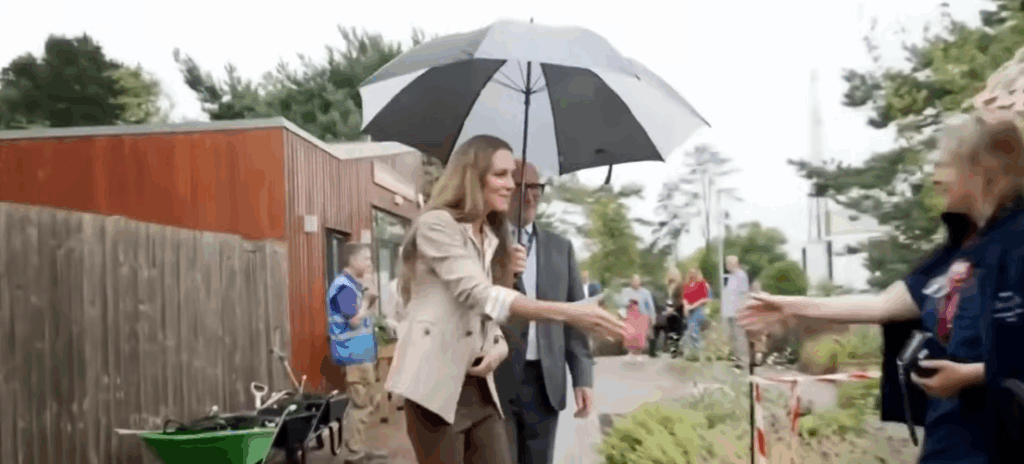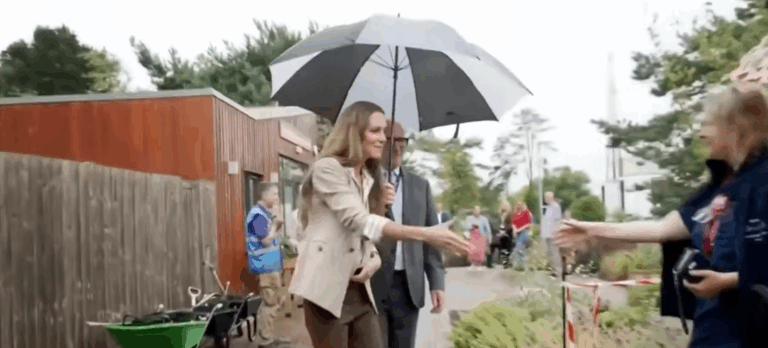With the sudden cancellation of her planned June 2025 appearance at Royal Ascot, Catherine, Princess of Wales, once again became the focus of public health rumors. The decision to skip the event raised new questions, even though no new diagnosis has been made public. Is Kate Middleton ill again?
The answer is currently no. After a year of chemotherapy, she is still in remission and is getting better. Her diminished public presence and carefully calibrated schedule, however, indicate that, although encouraging, the road to wellness is being taken carefully and not without difficulties.
Only a few weeks after undergoing abdominal surgery that was initially thought to be noncancerous, Kate courageously revealed in March 2024 that she had been diagnosed with cancer. The announcement was made through an incredibly intimate video message that was captured with genuineness rather than opulence. In addition to emphasizing the emotional gravity of the situation, her tone was remarkably successful in allaying public anxiety.

| Full Name | Catherine Elizabeth Middleton |
|---|---|
| Title | Catherine, Princess of Wales |
| Date of Birth | January 9, 1982 |
| Age | 43 |
| Spouse | Prince William, Prince of Wales |
| Children | Prince George, Princess Charlotte, Prince Louis |
| Occupation | Senior Royal, Patron, Public Speaker |
| Cancer Diagnosis | Announced March 2024 |
| Remission Status | Confirmed January 2025 |
| Recent Setback | Missed Royal Ascot June 2025 |
| Source | https://www.today.com/health/kate-middleton-cancer-rcna144691 |
She described how what was meant to be a simple recuperation turned into a drawn-out, emotionally taxing medical journey when her post-surgery tests revealed cancer. In her statement, she pointed out that gently delivering the truth to George, Charlotte, and Louis was more difficult than simply enduring treatment. Her words provided consolation through shared experience and struck a deep chord with families who have had to navigate similar conversations.
For Kate, her chemotherapy was finished by September 2024. She made it clear that healing wasn’t immediate and openly acknowledged the toll it had taken. She emphasized her new priorities with a very clear message: recovery is a journey, not a destination, by saying, “Doing what I can to stay cancer-free is now my focus.”
She then formally declared herself to be in remission in January 2025. The announcement was accompanied by a heartfelt thank you to her medical team at The Royal Marsden. She wrote, “We couldn’t have asked for more,” alluding to the discreet emotional support and medical advice she and Prince William received. Her post was resolute, optimistic, and purposefully realistic.
However, it was understandable that questions were raised when her absence from Royal Ascot was confirmed. Kate was supposed to ride with William in the second carriage, according to the official carriage schedule. Subtly, that plan changed. Instead, Kate avoided the spotlight while William rode with King Charles and Queen Camilla. At first, there was no formal explanation, which raised suspicions.
She was disappointed to miss the event, according to sources who later told People that rest was prioritized. According to an insider, “she’s still navigating her recovery.” Even though her health has improved, she still needs to be respected, careful, and adaptable. Rather than being alarming, the decision was especially responsible in the given context.
Carole Middleton, her mother, arrived close to Windsor Castle in the middle of the afternoon and was spotted attending the event by herself. The silent substitution served as a gentle reminder that Kate is taking her time and conveyed no sense of urgency. Particularly creative decisions like this, where she regains agency over her time, are both necessary and empowering given the psychological and physical toll of cancer recovery.
Royal insiders have suggested that major structural changes are occurring behind the scenes in recent weeks. Regarding Kate and William’s changes to their work-life balance, a source told People, “There are some major shifts coming.” This is about long-term sustainability and emotional rebalancing in a very public role, not just medical logistics.
In private, the couple has been reevaluating their priorities. Their marriage has reportedly strengthened during this time of shared hardship. Because stability at the top tends to spill outward, this is especially advantageous to the organization they represent. They are safeguarding not only Kate’s welfare but also the continuation of the monarchy by taking the time to realign their roles.
Importantly, Kate’s cautious return to royal responsibilities has not been motivated by show. Every appearance, including Garter Day and Trooping the Colour, has been carefully selected. There is no need to demonstrate resilience through performance, and there is no rush. In contrast, her approach feels rooted in authenticity, which has significantly increased public trust.
We are witnessing a highly regulated healing process rather than the resurgence of illness. A group of medical experts and reliable advisors are guiding her gradual return to public life by precisely controlling expectations and results. With remarkable tact, the balance between visibility and recovery is being managed.
Even though palace silence is frequently criticized for encouraging rumors, it could also serve as a form of defense. They protect Kate’s privacy by avoiding commenting on every rumor. Although some may find this quiet boundary annoying, it effectively protects her from intrusive narratives. It enables her to concentrate on her well-being without being confined to the news.
Even though rumors persist, particularly from media outlets looking for drama, the facts are still positive. Kate’s condition is remission. She’s getting better. She is putting her family first. Above all, she is serving as an example of how a public figure can bounce back with dignity in the face of intense scrutiny.
If anything, her absence from Ascot should be interpreted with understanding rather than concern. Many cancer survivors experience days when their strength wanes—not because they relapsed, but rather because they are constantly readjusting their energy and perspective. Pausing instead of continuing is a sign of wisdom, not weakness.


